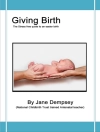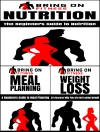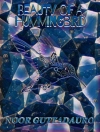Reiki is a healing technique, using gentle touch with the hands placed on or slightly away from the body to optimize physical, mental and emotional health. It is based on the assumption that the flow of energy through the body can be supported and adjusted to promote wellness.
Reiki in Clinical Practice is aimed at two main groups: ‘medical’ practitioners and those with a ‘medical’ background such as nurses, osteopaths, physical therapists, who may be familiar with Reiki but lack an evidence-based guide on conditions for which Reiki is most effective and who want the ‘ammunition’ to justify its use in their practice; those unfamiliar with Reiki but who are interested in finding how it can benefit their patients.
The book provides an accurate description of Reiki, based on qualitative and quantitative scientific evidence, in terms of how it can be used in medical settings to benefit patients of all types, physiologically and psychologically. It achieves this by following the journey of the author (a scientist), starting from her unsolicited encounter with Reiki and personal observations to her continuing testing of its validity and her quest to determine its effectiveness through robust, scientific investigation.
The author distils the essence of the currently peer-reviewed published research to produce a clear outline of the effectiveness of Reiki in alleviating disease and imbalance in various body systems. She will provide a summary of the effectiveness of Reiki (based on a review of surveys of its use) in various circumstances and locations.
She presents possible mechanisms by which Reiki may exert its effects. Unlike most books about Reiki, the book is written in a scientific style with which medical practitioners are familiar (clear, precise, logical and concise), so they will be more likely to read it, judge the evidence for themselves, and hopefully support, extend and develop Reiki treatment and training programs so that their patients will have more access to a non-invasive, inexpensive complementary therapy to assist in their healing.
Over de auteur
Ann Linda Baldwin Ph D is Director of Mind-Body-Science and Professor of Physiology at the University of Arizona where she studies the physiological effects of mental and emotional stress and quantitatively evaluates methods to reduce stress. In her business, for the last 14 years, she has used Reiki and Biofeedback to help those suffering from stress-related disorders. Dr Baldwin is a Master in Usui Holy Fire Reiki and Karuna Reiki and is a leader in the world of scientific Reiki research. She serves as Editor-in-Chief for the Center of Reiki Research and maintains its curated webpage of all peer-reviewed, published, scientific research studies involving Reiki.Dr Baldwin obtained her Bachelors degree in Physics from University of Bristol, UK, her Masters degree in Radiation Physics from University of London, UK and her Ph D in Physiology from Imperial College, University of London. She has published over 100 articles in peer-reviewed scientific journals and has been a member of several review panels for National Institutes of Health.












